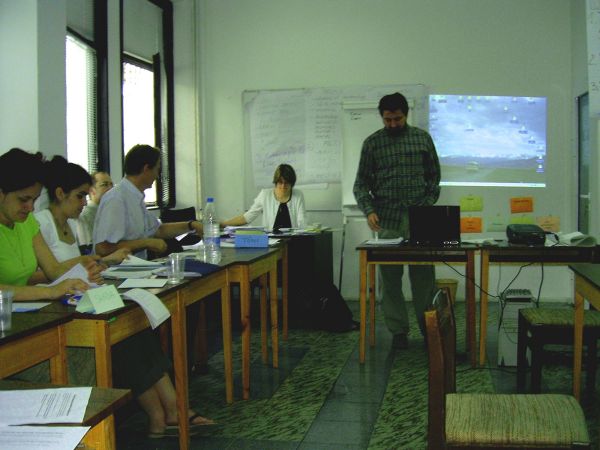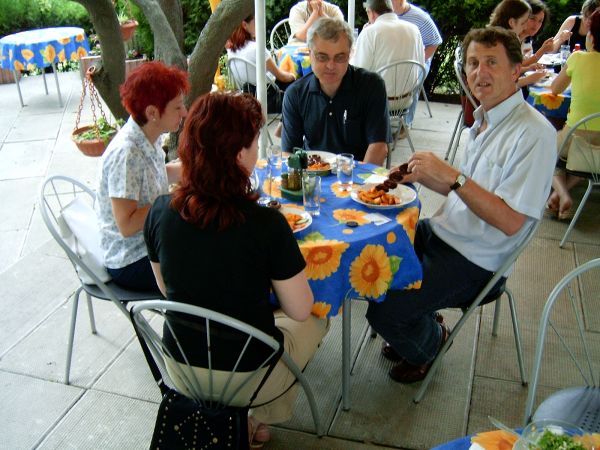“
Albena
Context
The ongoing reforms in public administration in the countries of Central and
Hence, NISPAcee prepared a continuation of the programme focused on building capacities for EU membership supported by UNDP and MATRA. This second stage started in June 2003 with preparing a manual for advisors in this area. The first training activity was a train-the-trainers session “Building Advisory Capacities on
Three of the new trainers Marta Darulova (
Programme
Apart from the general reform efforts in the area of public administration to make it more reliable and predictable, open and transparent, accountable and efficient as well as effective, the countries are facing another challenge, namely meeting the EU requirement of proper implementation of EU law and policies. An underlying principle is that of coordination.
The programme covered four main topics:
1. The concept of institution building and administrative capacities, building the European administrative space, framed by the principles and core areas for Public Administration as formulated by SIGMA
2. Tools of analysing the organisational structures with a view of improving them with the help of quality assessment tools such as EFQM, and CAF, the concept of benchmarking.
3. European Union policy making mechanisms, and the possibilities of member states to influence these processes with the stress on the national coordination of EU affairs with a view to efficient implementation of EU law in the country afterwards.
3. The EU law and policy implementation issues in (new) MS and the case law of European Court of Justice as a source of guidelines in the absence of rules from the side of EU.
Results
The course in terms of scope, depth, materials and methods was well above expectations of participants and will have positive impact on professional development. They would have welcomed more time for individual course elements, especially the quality assessment tools. The participants as well as the trainers appreciated a very good working atmosphere, interested and active participation, enough room for experience sharing and bringing in examples and useful case studies. This event confirmed that it makes sense to look for common solutions as our problems are still common resulting from the past development and present ambitions.
Participants
Ms. Tashchilova Svetlana, Belarus
Mrs. Bebenova Diana, Bulgaria
Mrs. Yotova Mimi, Bulgaria
Ms. Gramadska Elitza, Bulgaria
Ms. Marinova Ekaterina, Bulgaria
Mr. Shopov George, Bulgaria
Mrs. Ivanova Mariana, Bulgaria
Mr. Parun Mirko, Croatia
Ms. Eerma Diana, Estonia
Mrs. Maurina Jelena, Latvia
Ms. Rjabko Kristine, Latvia
Ms. Farcas Sanda, Romania
Mr. Pamfil Virgil, Romania
Ms.
Mr. Pavlovic
Mr.
Mr.






 Price:
Price: 








